Planxty were an Irish folk music band formed in January 1972, consisting initially of Christy Moore, Andy Irvine, Dónal Lunny, and Liam O'Flynn. They transformed and popularized Irish folk music, touring and recording to great acclaim.
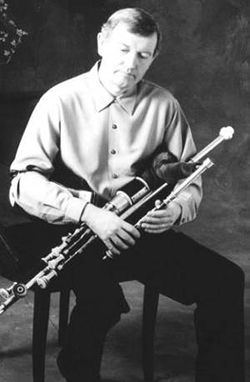
Liam O'Flynn, Óg Flynn was an Irish uilleann piper and Irish traditional musician. In addition to a solo career and as a member of Planxty, O'Flynn recorded with: Christy Moore, Dónal Lunny, Andy Irvine, Kate Bush, Mark Knopfler, the Everly Brothers, Emmylou Harris, Mike Oldfield, Mary Black, Enya and Sinéad O'Connor.

Andrew Kennedy Irvine is an Irish folk musician, singer-songwriter, and a founding member of Sweeney's Men, Planxty, Patrick Street, Mozaik, LAPD and Usher's Island. He also featured in duos, with Dónal Lunny, Paul Brady, Mick Hanly, Dick Gaughan, Rens van der Zalm, and Luke Plumb. Irvine plays the mandolin, mandola, bouzouki, harmonica, and hurdy-gurdy.

The Dreaming is the fourth studio album by English singer-songwriter Kate Bush, released on 13 September 1982 by EMI Records. Recorded over two years, the album was produced entirely by Bush and is often characterised as her most uncommercial and experimental release. The Dreaming peaked at No. 3 on the UK album chart and has been certified Silver by the BPI, but initially sold less than its predecessors and was met with mixed critical reception. Five singles from the album were released, including the UK No. 11 "Sat in Your Lap" and the title track.

This Woman's Work: Anthology 1978–1990 is a compilation box set by the English singer-songwriter Kate Bush. Released in 1990 on CD, vinyl and cassette; it comprises her six studio albums to that point together with two additional albums of B-sides, rarities and remixes. The box set was re-released, on CD only, in 1998 in different packaging. It was not released in the US mainly due to The Sensual World being released there by Columbia Records.

Dónal Lunny is an Irish folk musician and producer. He plays guitar and bouzouki, as well as keyboards and bodhrán. As a founding member of popular bands Planxty, The Bothy Band, Moving Hearts, Coolfin, Mozaik, LAPD, and Usher's Island, he has been at the forefront of the renaissance of Irish traditional music for over five decades.

Prosperous is the second album by Irish folk musician Christy Moore, released in 1972. His first album, Paddy on the Road, was recorded by Dominic Behan in 1969 and has long been out of print. In addition to Moore's guitar and voice, Prosperous featured musicians Andy Irvine, Liam Óg O'Flynn and Dónal Lunny. These four musicians later gave themselves the name Planxty, making this album something of the first Planxty album in all but name. Other musicians included Kevin Conneff on bodhrán, Clive Collins on fiddle, and Dave Bland on concertina.
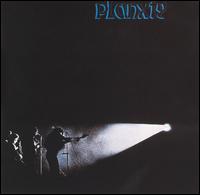
Planxty is the first album by the Irish folk group Planxty, recorded in London during early September 1972 and released in early 1973.

Welcome Here Kind Stranger is a 1978 album by Paul Brady. After leaving The Johnstons, Brady toured with Planxty until they disbanded in 1975, and recorded a duo album with Andy Irvine in 1976.

Cold Blow and the Rainy Night is the third album by the Irish folk group Planxty. It was recorded in Sarm Studios, Whitechapel, London during August 1974 and released the same year. It takes its title from the third song on the album, "Cold Blow and the Rainy Night".
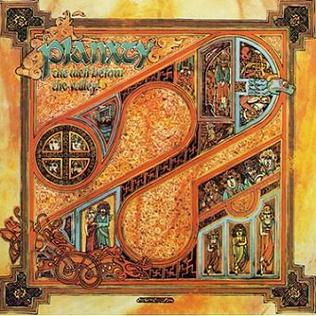
The Well Below the Valley is the second album by the Irish folk group Planxty. It was recorded at Escape Studios in Kent, England, from 18 June 1973 until the end of the month, and was released later that year. It takes its title from the sixth song on the album, "The Well Below the Valley".

Ordinary Man is the tenth studio album by Irish folk artist, Christy Moore. It features songs like "Ordinary Man", "St. Brendan's Voyage" and "Another Song is Born". The album featured songs by Peter Hames, Johnny Mulhearn, Hugh McDonald, Colm Gallagher and Floyd Red Crow Westerman; as well as some backing vocals by Enya on "Quiet Desperation", "Sweet Music Roll On" and "The Diamondtina [sic] Drover" and some fine uilleann pipes work by Liam O'Flynn. The original release of the album featured the song "They Never Came Home" which Moore wrote for the victims and families of the Stardust fire. The song was quickly removed from the album because the lyrics were found to be libelous.

After The Break is the fourth studio album by the Irish folk music band Planxty, recorded at Windmill Lane Studios from 18 to 30 June 1979 and released the same year. It was the band's first of two releases on Tara Records.
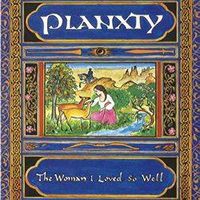
The Woman I Loved So Well is the fifth studio album by Planxty. Like their previous album, After The Break, the album was recorded at Windmill Lane Studios and released by Tara Records. Co-produced by band member Dónal Lunny and engineer Brian Masterson, the album was recorded in April and May of 1980 and released on LP in July of that year. It remains in print on CD and in digital form from Tara to date.
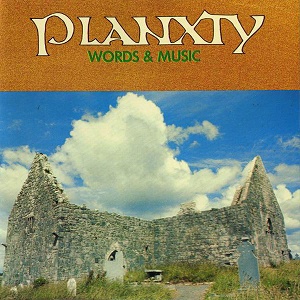
Words & Music is the sixth album by the Irish folk band Planxty, produced by Dónal Lunny and recorded at Windmill Lane Studios in late October and early November of 1982; it would be their only release on the WEA label. In 1989, the album was reprinted by the Shanachie label, who have kept it in print ever since.
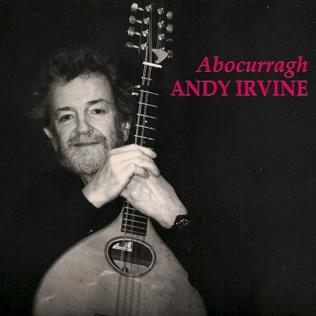
Abocurragh is an album by Andy Irvine recorded in Dublin, Norway, Australia, Hungary and Brittany between February 2009 and April 2010. It was produced by Dónal Lunny who also plays on all the tracks, except the last one.

Rainy Sundays... Windy Dreams is Andy Irvine's first solo album, produced by Dónal Lunny and recorded at Dublin's Windmill Lane Studios in late 1979. It was released in January 1980 by Tara Records.

Changing Trains is the first studio album recorded by Mozaik in Budapest during November 2005, and for which they had rehearsed new material a few months earlier, in January and April.

Andy Irvine/70th Birthday Concert at Vicar St 2012 is a live recording of a pair of concerts held at Dublin's Vicar Street venue, on 16 and 17 June 2012, to celebrate Andy Irvine's 70th birthday.

Between the Jigs and the Reels: A Retrospective is a two-disc anthology by the Irish folk band Planxty. It includes a 17-track CD and a 36-track DVD with over two hours of previously unreleased footage (1972–1982) from RTÉ archives.


















